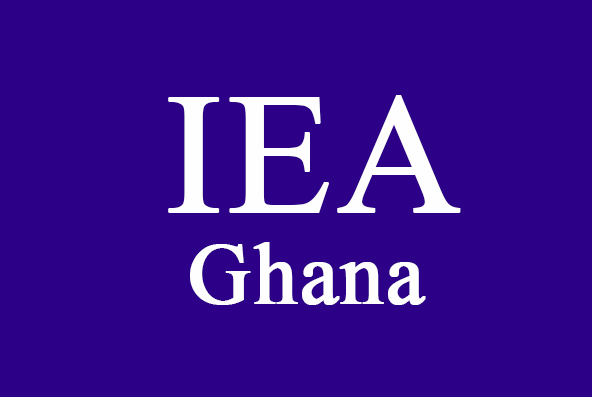The Institute of Economic Affairs (IEA) is urging present and future governments to take the country’s development destiny into their own hands because that’s the only way to end the perennial International Monetary Fund Programme.
According to the economic think tank, Ghana needs to build and entrench its own policy credibility without the IMF anchor over the long term.
“The long-term economic progress and survival of Ghana depends on internalising the country’s development by leveraging its abundant domestic resources to support home-grown, inclusive and cross-cutting policies anchored by financial discipline and a transformational strategy”, it stressed.
In this regard, the IEA said “it will be helpful to have a National Development Plan that spells out broad national priorities and strategies to achieve them. No longer should Party Manifestoes that are often characterised by experimentation and wayward policies that cater to individual and party interests rather than the national interest”
Learn from Covid-19, build buffers to prevent any economic calamity
The IEA also urged present and future governments to learn lessons from the Covid-19 pandemic and the Russia-Ukraine war since they have exposed Ghana’s existing vulnerabilities, culminating in the economic crisis that drove the nation back to the International Monetary Fund.
Most importantly, even beyond the IMF programme requirements, it wants the government to build strong economic and financial buffers, including a sizable fiscal space, a sinking fund to support debt repayments, among others.
The economic think tank said a contingency fund to cater for economic shocks and emergencies, and a robust financial sector must be established.
“The IMF programme, just like the previous 16, can only bring the country temporary relief in terms of macroeconomic and financial stability and a boost in market confidence and policy credibility. The programme, as expected, is geared toward achieving targets and fulfilling goals that the IMF has determined to be appropriate for dealing with Ghana’s economic crisis”.
“However, these targets and goals are not sufficiently ambitious as the programme does not seek to harness the country’s full potential. Like previous programmes, this one cannot be the game changer for Ghana; it cannot be the panacea for the country’s recurrent economic crises. Ghana requires quantum jumps in its development and not the small incremental changes embodied in IMF programmes”, It stressed.
Latest Stories
-
African Music Week Accra 2025 launched
53 minutes -
Vicky Hamah, Joyce Bawah and Zanetor Rawlings must feature prominently in Mahama’s Administration
1 hour -
Kelvynboy blames career challenges on Stonebwoy’s “mafia tactics”
1 hour -
Unilever targets kids with the launch of new Pepsodent Kids toothpaste
1 hour -
My award would have been more meaningful if galamsey had been stopped – Erastus Asare Donkor
2 hours -
Come again, Clara Beeri Kasser-Tee; Where are the Inconsistencies in the EC’s work?
2 hours -
Bagbin is right for his position on quashed MP results – Lawyer Amanda Clinton
2 hours -
Expand STEM education to reach rural areas – Prof Ernest Aryeetey to incoming administration
2 hours -
“Stop being crybabies” – Benjamin Quashie to NPP over disputed parliamentary seats
2 hours -
New Juaben Omanhene prioritises environmentally friendly initiatives
2 hours -
Consultant calls for women empowerment, strategic family planning to address teenage pregnancy and poverty
2 hours -
Accra Archdiocese holds Nine Lessons and Carols
3 hours -
Residents in Volta region rally behind Gabriel Kwamigah Tanko Atokple for Council of State representation
3 hours -
Cedi gained 1.44% to dollar last week; one dollar going for GH¢15.75
3 hours -
HR practitioners told to push for increased mental-health investments
4 hours

